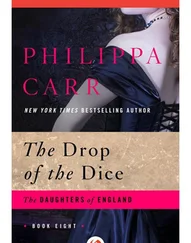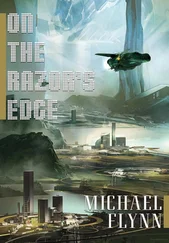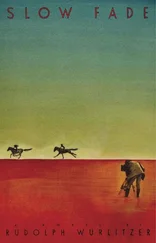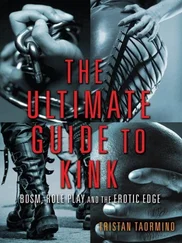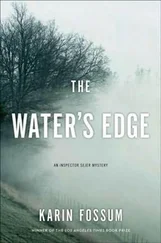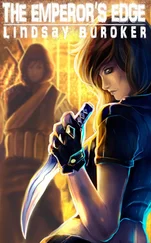The Negro pulled himself up to his full height, his sad blazing eyes staring into hers. Perhaps she was right. If she was foolish enough to become involved with such confusion and venal behavior, he would be better off where he was.
He walked away, then paused and slowly turned back, asking if he could buy or trade for her. He had plenty of beads and skins to bargain with, as well as all the fruit the ship would need. He looked over at Zebulon. Not only that, but it was clear that she should run away as soon as possible, as one of the men she was traveling with was possessed by a very strange spirit, unlike any he had ever witnessed.
Delilah replied that having been given her freedom, she was no longer for sale and that if she ran away it would be on her own terms, no one else's.
The Negro nodded, not believing a word. Removing a handful of cowry shells from a small bag hanging from a string around his neck, he tossed them high in the air, then knelt to study the patterns they formed on the sand.
She was owned, he told her. But not by a man. She was owned by a curse.
Impatiently, the Count took her arm. "Are you coming, or do you prefer the company of a savage?"
When she hesitated he stomped after the others, all of whom — except for Zebulon, who had remained behind — were already halfway to the lifeboat.
"Would you consider abandoning the ship?" she asked, only half-joking.
"Not hardly," Zebulon replied. "Not when there's gold to be found."
The Negro, who had been watching their exchange, nodded abruptly to Delilah, then walked back over the dune with the Seminoles.

 ebulon and Delilah were in the lifeboat and halfway back to The Rhinelander when the Negro reappeared on top of the dune.
ebulon and Delilah were in the lifeboat and halfway back to The Rhinelander when the Negro reappeared on top of the dune.
Bending a long bow, he shot an arrow in a high arc towards them, a flight that missed the lifeboat by less than a foot.
 EBULON LAY ON HIS BUNK LISTENING TO THE SHOUTS OF men climbing into the rigging. Hours later, the ship under full sail, he heard sounds coming from the next cabin; they were sonorous and melancholy chords from an instrument he had never heard before. As he listened, he remembered the shape of Delilah's ankles and the slow sway of her broad hips as she stepped out of the lifeboat.
EBULON LAY ON HIS BUNK LISTENING TO THE SHOUTS OF men climbing into the rigging. Hours later, the ship under full sail, he heard sounds coming from the next cabin; they were sonorous and melancholy chords from an instrument he had never heard before. As he listened, he remembered the shape of Delilah's ankles and the slow sway of her broad hips as she stepped out of the lifeboat.
That night at dinner she was sitting next to the Count at the end of a rectangular oak table supported at each corner by ropes hanging from the ceiling. The Captain sat in the middle of the table, expounding on his favorite topic: the world's obsession with gold at the expense of freedom and happiness.
"Gold is a curse," the Captain pronounced, "a dangerous mistress seducing everything in her path. I am now on my third voyage to California. Going there is always hope fueled by addiction and greed. Returning, all is loss and desolation."
Most of the passengers were no longer listening, having heard this speech all the way across the Atlantic and into the Caribbean.
The Captain shifted his focus to Zebulon, who represented, among other curiosities, a new ear. "I understand that you have been in California, Mister Shook. I'm curious why you have chosen to return?"
"I guess you might say that my bucket sprang a leak."
"And now you are returning to fill your bucket?"
Zebulon nodded, his eyes gazing through a porthole at flakes of green phosphorous dancing across a black sheen of water.
"Gold is a blessing that provides the fuel that creates transportation and business," offered Artemis Stebbins, the New York Journalist. "There's never been anything remotely like it in the entire history of the world. Thank god that this country is on a gold standard!"
"A blessing that will produce its share of casualties," the Captain added.
"The price we must pay," said Cox.
"I am happy to pay," the Finn said. "I want to be rich."
"If we don't risk, we die," added the Polish merchant.
"My brother and me, we have tried once before, and now we try again," said Heinrich, the oldest of the German merchants. "Otherwise what? Sell fancy shoes and women under-wears?"
"There are those who would agree with you," the Captain observed: "businessmen, preachers, doctors, soldiers, criminals. Good men and bad, all running from their past. To what end? To die of cholera or be scalped or shot or driven mad with no one to say prayers over their unmarked graves. Why? I will tell you why: greed. Nothing else."
He looked around the table. "I sleep at night because I have chosen this ship to be my prison. Because of that choice, I am free."
"You are stupid," Heinrich said. "We are here. Where else are we? We go on. No one knows what will happen."
"Nothing ever moves in a straight line," the Count said, "even if man must be convinced that it does. Otherwise, he has no hope."
"Hope?" The Captain lit a cigar, pleased, finally, to be engaged in a stimulating conversation. "Man is not a shark, always moving forward. He goes backward. He holds his ground. By changing directions he avoids boredom, which, I submit, is the biggest curse of all."
"Curse?" the Pole asked. "What curse? I don't know any curse.
Zebulon felt Delilah's hand on his knee. When he reached down, his hand closed over a slab of butter.
"Always we search for new gods," Hans said.
"Otherwise we are donkeys," Heinrich replied.
"Better new gods than old demons, or the hounds of hell," added the Pole.
"A man needs a target," Cox insisted. "Otherwise he faces chaos."
"Chaos," the Count reached for Delilah's hand, "the mother of creation."
The Count exchanged his plate for Delilah's, which had remained untouched. "Why else would we suffer the stagnation and boredom of a sea voyage?"
"When I was young I sleep on a dirt floor," the Finn said. "I am cold and lonely. Cossacks kill my mother and father. When I find gold I am buying a woman and making a big house. I am having walls inside walls and never open the door."
"And you, Mister Shook?" the journalist asked. "What do you think?"
"A man traps what he can and heads for high ground," Zebulon replied. "If he's lucky, he gets to do it again."
The Captain nodded. "In my world, when a sailor tacks before the wind in the middle of a storm, he makes a deal with nature. Either that, or he finds himself at the bottom of the sea." He looked over at Delilah. "My dear Lady, as the only woman among us, I am curious to know your opinion."
"I have no opinion," Delilah said. "I surrender to what is given.
Cox lifted his wineglass. "A toast to a wise woman."
The Count struck his fork against his glass. "A song! A song from Delilah!"
"Here! Here! Here!" the others chanted.
She shook her head, her eyes pleading with the Count.
"If not a song, at least a poem," the Count insisted.
"I have no poems," she said, looking down at her plate, "and I have no songs." Then she stood up and, not looking at anyone, left the cabin.
The rest of the meal was spent in distracted chatter: "Will there be rain — "; "So humid — "; "When do we reach the equator — "; "Do the Germans or the Belgians make the best potato pancakes — "; "I detest French opera. So inferior to the Italians — "; "You can't improve on the Greeks when it comes to fish — "; "But the French… their bouillabaisse… impeccable — "
No one except the Count paid any attention when Zebulon left the table.

 ebulon was standing on the stern deck when the Count appeared, offering him a cigar. "Mexican, I'm sorry to say. Not up to Cuban standards."
ebulon was standing on the stern deck when the Count appeared, offering him a cigar. "Mexican, I'm sorry to say. Not up to Cuban standards."
Читать дальше
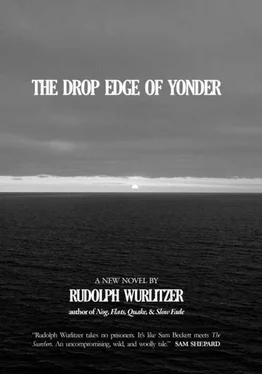

 ebulon and Delilah were in the lifeboat and halfway back to The Rhinelander when the Negro reappeared on top of the dune.
ebulon and Delilah were in the lifeboat and halfway back to The Rhinelander when the Negro reappeared on top of the dune. EBULON LAY ON HIS BUNK LISTENING TO THE SHOUTS OF men climbing into the rigging. Hours later, the ship under full sail, he heard sounds coming from the next cabin; they were sonorous and melancholy chords from an instrument he had never heard before. As he listened, he remembered the shape of Delilah's ankles and the slow sway of her broad hips as she stepped out of the lifeboat.
EBULON LAY ON HIS BUNK LISTENING TO THE SHOUTS OF men climbing into the rigging. Hours later, the ship under full sail, he heard sounds coming from the next cabin; they were sonorous and melancholy chords from an instrument he had never heard before. As he listened, he remembered the shape of Delilah's ankles and the slow sway of her broad hips as she stepped out of the lifeboat.
 ebulon was standing on the stern deck when the Count appeared, offering him a cigar. "Mexican, I'm sorry to say. Not up to Cuban standards."
ebulon was standing on the stern deck when the Count appeared, offering him a cigar. "Mexican, I'm sorry to say. Not up to Cuban standards."